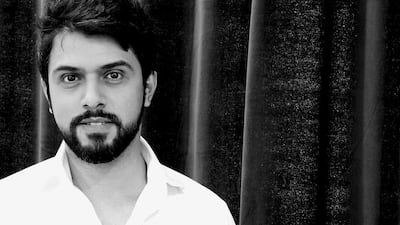When Kuwaiti novelist Saud Alsanousi published The Bamboo Stalk in Arabic three years ago, it immediately felt like an important book.
The set-up might have been familiar – a novel chronicling the experiences of the quiet army of Filipina maids who come to the Arabian Gulf for work – but that was just the starting point. A quietly thoughtful exploration into the identity struggles of José, the product of a brief romance between a Kuwaiti, Rashid, and his maid, Josephine, The Bamboo Stalk was globe-trotting, cross-cultural and thoroughly deserving of the International Prize For Arabic Fiction award that would follow in 2013.
Timed to coincide with the latest IPAF season, the English translation should give a whole new audience pause for thought. Interestingly, Alsanousi seems very keen to play down the questions of religious, cultural and racial identity that José constantly grapples with.
“I don’t actually think José’s situation is a huge phenomenon in Kuwait,” he says. “But it does exist. What was more interesting for me is that even though we are all from the same place and speak the same language, we still tend to feel we belong to tribes, families and religious sects. So we all suffer from the problem of identity. Stuck in between two cultures, religions and languages, José is just a magnification of that.”
It’s a fascinating point. But it doesn’t diminish the sadness redolent in one of his migrant characters when they mutter, “we have no feelings and we understand nothing” (when of course they do).
It’s a hammer blow of a line in a sympathetic yet often dryly witty book. Alsanousi admits that as a Kuwaiti, he has been guilty of closing himself off in the past. But his time in journalism opened his eyes. “I met people from so many different backgrounds, and I have to say our problem is our isolation,” he says.
“We live in what resembles a glass box, even when we travel far, because we only see ourselves. For this reason we feel we are right in everything we do – our culture, behaviour and modes of thinking.
“If we knew more about others’ backgrounds and their psyches, we might be able to draw similarities. We might know where we stand in relation to others in the world. I’ve been preoccupied with this idea for a long time and a novel allowed me to look at it a lot more intimately.”
As Alsanousi realised he was really on to something with The Bamboo Stalk, he understood that the sections where José goes back to the Philippines would have to come from somewhere deeper than internet searches and references in books. He actually stopped his research, worried that it was making his writing cold and emotionless, and booked a flight.
“I wouldn’t have been able to portray José without living in a house that looked like his and walking the roads he walked, without exploring a country, a people and a culture that is completely different to mine,” he says.
But there was a strange – if fruitful for his writing – by-product of the trip, too. “As soon as I landed in Kuwait, I saw things in a completely different way,” he says. “It was as if I wasn’t Alsanousi at all, but José, and discovering Kuwait for the first time.”
Judging by The Bamboo Stalk, it's a Kuwait he completely understands, but feels unsure about, too. As Robin Yassin-Kassab wrote in The National's review of the translation this month, even though the faults of the country are more than apparent, blame is laid at the hands of a social system. There's also a great deal to love about the "craziness" of the average Kuwaiti – and José certainly enjoys hanging out with his semi-countrymen. So where does Alsanousi stand now, two years since his book shot to prominence?
"I won't hesitate to admit that perhaps I've benefited the most from the prize, given that I was the youngest, least-experienced novelist," he says. "It was actually unsettling at first, and I disappeared from the media while I worked on Mama Hissa's Mice [which was published in Arabic two months ago]. As for Kuwait itself, I couldn't tell you where its future lies, to be honest. But my soul is full of hope."
• The winner of the 2015 IPAF Prize will be announced in Abu Dhabi on Wednesday
artslife@thenational.ae

